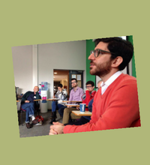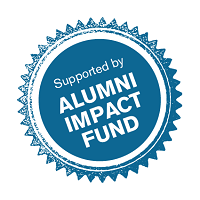Simone Papa, MA Social and Political Theory

Conference impact
“I have grown more confident in communicating with other scholars, enlarging my network and enriching the prospects of a satisfying professional experience after University.”
Overview
The conference investigated the relationship between the natural and human sciences through seven paper presentations and many reading groups led by the speakers.
What were your main achievements?
In a critical period during the redaction of my MA dissertation thesis, thanks to the conference I was able to insert my investigation on the implications of Marx’s and Bourdieu’s sociologies for the theory of identity, in the wider debate in the philosophy of knowledge. A critique of aspects of Kant and Hegel’s philosophies is key to the theoretical session of the thesis, so getting in touch with important scholars and getting to know their interpretations, was a major help. The conference was an immense opportunity to solidify and enlarge my academic network: this will certainly constitute a source of moral and technical support in the years ahead, both for my academic and professional life.
What did you enjoy the most?
It was a conference of excellent quality, where all participants were in their doctoral or post-doctoral research years and well-prepared academics. The experience therefore constituted a great challenge for me. It confirmed the validity of my research plans and gave me some more sense of self-direction. I perfected the quality of my presentation skills and gained some valuable insights on the philosophy of knowledge. I will treasure these during this second MSc in cognitive science I am studying presently, and will certainly be able to use them in the professional world, as a journalist and social activist.
What were the hardest aspects?
I was largely new to the debates on Kant and Hegel the conference focused on, and therefore, at times, I found the discussion to be too hard to follow. Despite this, though, all participants were extremely welcoming and, in the limits of reasonableness, would be willing to explain some of the concepts and ideas in further detail (to this purpose, the reading groups that followed each presentation were also very helpful). My interventions were limited, yet always coherent with the general line of argument and appreciated.
What skills have you developed?
My academic writing and presentation skills benefitted immensely from the experience, which helped to better structure my knowledge of the subject and offered me an opportunity to dive into the debate and learn about some key issues and concepts faster than I would have otherwise. I have also grown more confident in communicating with other scholars, enlarging my network and enriching the prospects of a satisfying professional experience after university.
How do you think your experience will benefit you in the future?
I gained invaluable insights on the theory of knowledge which I will be able to use during this last year of study. The network of friends and colleagues I can appeal to for help and advice and to seek cooperation has enlarged vastly.
Thank you to donors
Without this scholarship, it would have been much less likely for me to take part in the conference, so I must thank sincerely both the selectors and the donors who made this possible. It was an honour to receive it and I hope to be able to repay soon by achieving my career objectives and offering in my turn support to other engaged students. I am sure you know very well that the value of your help goes way beyond the nominal amount I have been awarded. It really contributes to making a success of my academic and professional experience. So, thank you.
With grateful thanks to the alumni donors who made the PGT Professional Development Bursary possible. 